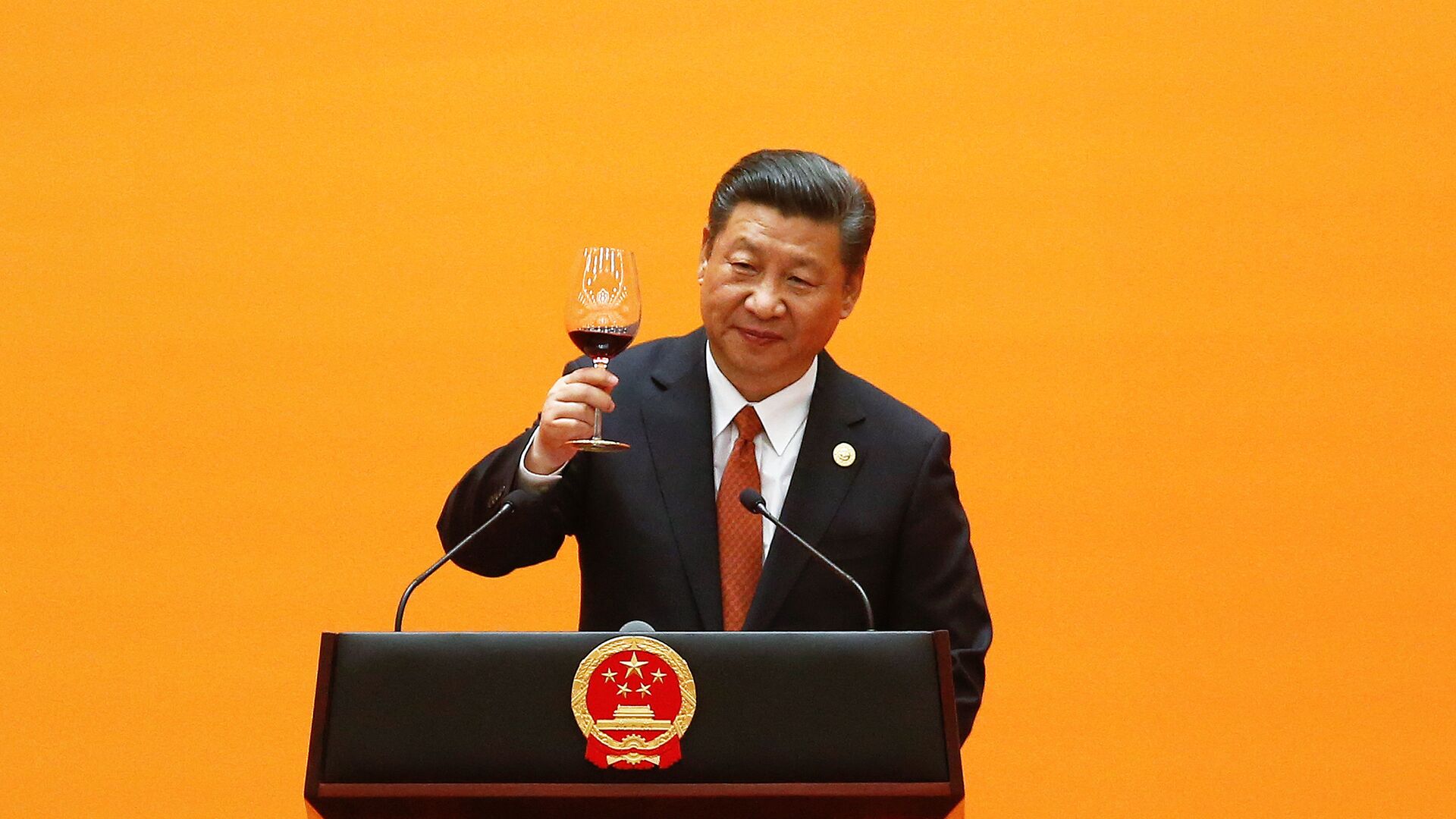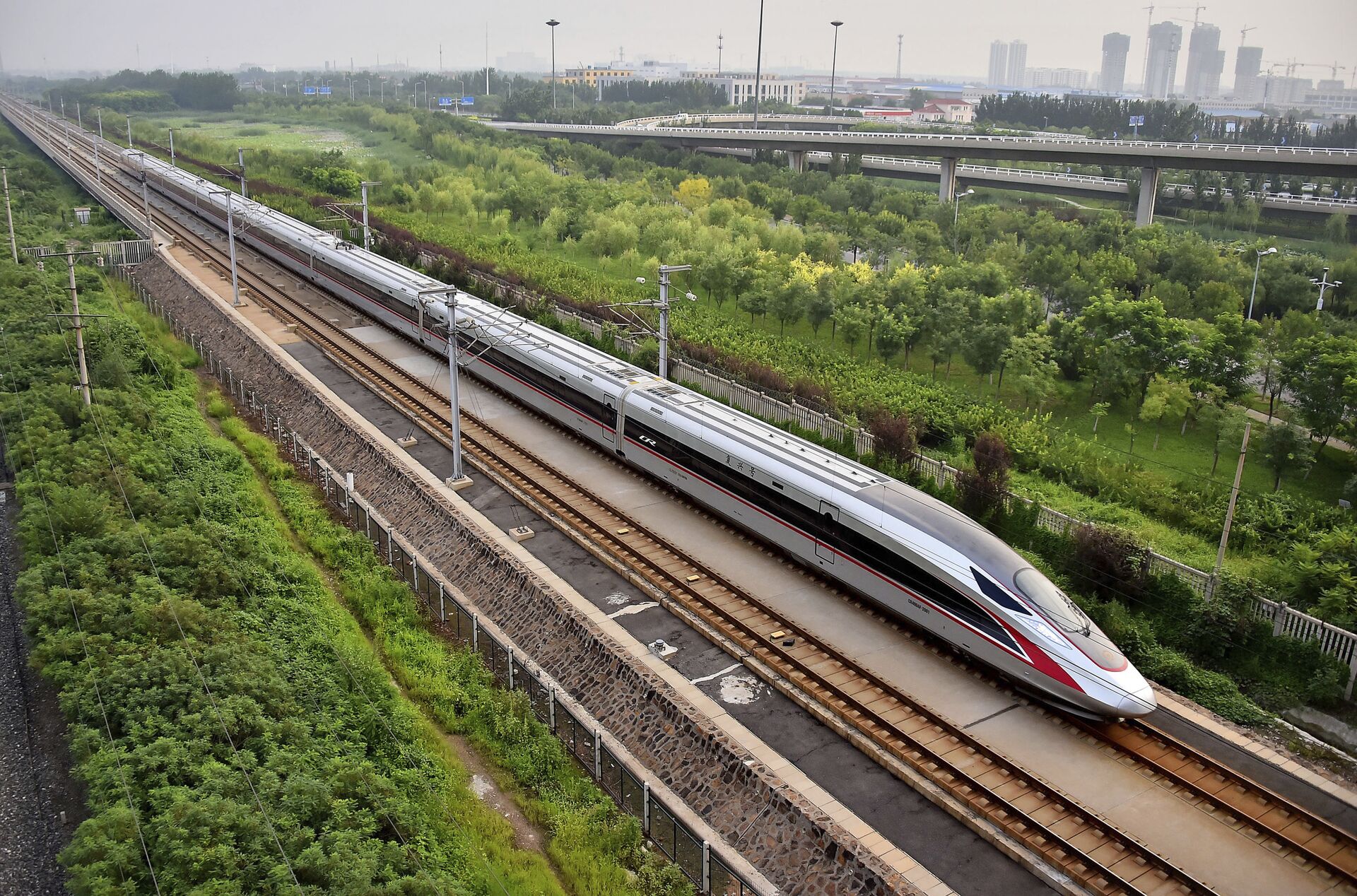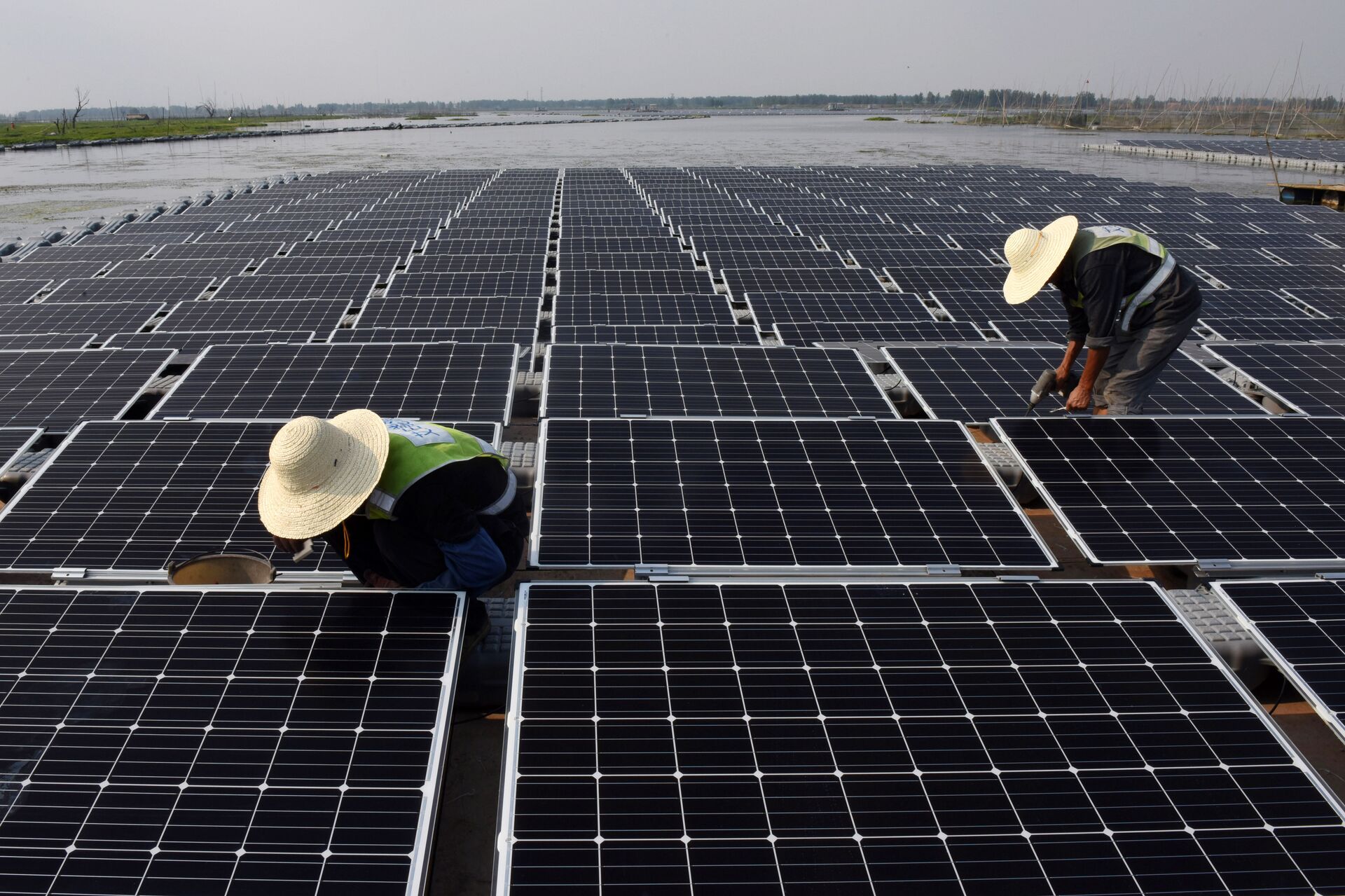Xi Jinping’s Leadership Hailed in Resolution at Communist Party of China’s Sixth Plenum
20:32 GMT 11.11.2021 (Updated: 18:35 GMT 19.10.2022)

© REUTERS / Damir Sagolj
Subscribe
The leadership of the Communist Party of China (CPC) has adopted a resolution at the close of its sixth plenum on Thursday praising the country’s accomplishments under Xi Jinping Thought. While western media has painted it as clearing the way for a power grab, the statement focused on Xi’s predecessors and the party at large.
The end of the CPC Central Committee’s Sixth Plenum featured the unusual element of historical resolution, only the third such document to have been published in the party’s 100-year-long history. The first was by Mao Zedong in 1945 at the close of the war against the Japanese occupation of China and the start of the final phase of the civil war against the country’s Republican government; and the second by Deng Xiaoping in 1981, at the start of the turn toward Socialism With Chinese Characteristics, the CPC’s term for the country’s unique brand of market socialism, and the opening of relations with the United States.
The reflective statement helped place Xi’s 9 years in power in their historical context, explaining how each phase of the Chinese socialist revolution has been necessary to reach the present point.
The final phase it identified was the beginning of Xi Jinping Thought, associated with the president taking office at the 18th National Congress in 2012 and ushering in a slew of new approaches to new situations, as well as lasting problems for the East Asian socialist republic.
“Comrade Xi Jinping has many profound thoughts and scientific assessments about a series of significant theories and their implementation … and raised a series of original and new concepts and strategies on governing the nation. He is the major author of ‘Xi Jinping Thought on Socialism with Chinese Characteristics for a New Era’,” the communique said.
It goes on to say that the party’s Central Committee, with Xi at its core, "has demonstrated great historical initiative, tremendous political courage, and a powerful sense of mission … has solved many tough problems that were long on the agenda but never resolved and accomplished many things that were wanted but never got done. With this, it has prompted historic achievements and historic shifts in the cause of the Party and the country."
Goals Achieved Under Xi
That such a statement would come in 2021 should perhaps be unsurprising: not only is it the centenary of the party’s foundation by Chen Duxiu and Li Dazhao in Shanghai in 1921, but it’s also the first since achieved its 2020 goal of becoming a “moderately prosperous society” that had abolished extreme poverty.

In this Aug. 21, 2017 photo released by China's Xinhua News Agency, a Fuxing bullet train, China's latest high-speed train, arrives at a train station in northern China's Tianjin Municipality
© AP Photo / Yang Baosen/Xinhua
The resolution notes that having achieved that centenary goal, the country is now well-situated to begin moving toward its second centenary goal: becoming a “fully developed nation” and “a global leader in terms of comprehensive national power and international influence” by 2049, the 100-year anniversary of the foundation of the People’s Republic of China in 1949.
Some of the other important problems Xi has tackled since 2012 have included the reincorporation of Hong Kong into the PRC, the threat posed by Uyghur terrorist groups in Xinjiang, curbing environmental damage and pollution, laying out a process for conversion to a cleaner economy, and tackling the pervasive problem of corruption.
The lattermost helped provoke a Wednesday article in Bloomberg decrying the effect of Xi’s anti-corruption campaign on the ability of US spies to ply the country for its secrets.
“A lack of top-tier intelligence on Chinese President Xi Jinping’s inner circle is frustrating senior Biden administration officials struggling to get ahead of Beijing’s next steps,” the paper reported, citing “current and former officials” privy to top-level intel reports.
"Xi’s sweeping efforts to change China’s domestic politics and consolidate his control also have taken a toll on American intelligence," the article explains. "The shift from a system of 'collective' leadership under former Presidents Jiang Zemin and Hu Jintao toward one dominated by Xi means that the CIA has had to go from focusing on the inner circles of seven or even nine top leaders to, effectively, just one."
"Xi’s broad anti-corruption campaign, which has punished more than 1.5 million officials, has also led to greater scrutiny of Chinese officials’ income, making payments to potential sources far more problematic,” the article adds, explaining that Beijing’s counterintelligence efforts have also gotten exponentially better in recent years, which also makes spies’ jobs harder.
US intelligence on China has also been greatly impeded by a series of deadly blunders, such as the collapse of the CIA’s information networks in Iran and China after Tehran cracked their informant recruiting system in 2009, resulting in the discovery and execution of more than two dozen CIA agents. The officials who spoke with Bloomberg said the lack of quality intelligence has meant the US was caught off-guard by a number of major policy changes, such as shutting down US access to its proxies in Hong Kong with the new national security law.
To help counter that problem, CIA Director William Burns unveiled a new China Mission Center to focus on what he called “an increasingly adversarial Chinese government.”

This photo taken on June 7, 2017 shows workers at the world's largest floating solar power plant in a lake in Huainan, in China's central Anhui province
© AFP 2023 / STR
West Sees Xi ‘Moving to Cement Power’
The resolution has been widely claimed in Western media to be a further consolidation of power by Xi, despite having been produced collectively by a leadership body of 300 people. Western reports have also portrayed the document as paving the way for Xi to “secure an unprecedented third term in office next year - and potentially rule China for life,” as NBC put it on Thursday.
Reuters characterized it as “amplifying President Xi's authority,” while Politico called it “Xi's Mao moment.” The US state-owned Voice of America was indistinguishable from the supposedly free press, noting that “analysts see China's Xi moving to cement power at the leaders' meeting.”
The Washington Post’s story was titled “China passes history resolution to enshrine open-ended rule of Xi Jinping.” Readers will learn that by passing the historical resolution, the CPC was “affirming Xi’s iron grip as he prepares for a near-inevitable third term that would extend his rule until at least 2027.”
The source for these claims are all western China-watchers and think tank analysts, not the document itself, which makes no mention of such a development. In fact, the document makes little mention of Xi himself, mostly focusing on the party’s past accomplishments and its collective work in cementing those accomplishments into real results - which happened to occur during Xi’s tenure.
Socialism with Chinese Characteristics has long outlived Deng, who left office in 1989. There’s no reason Xi Jinping Thought, which the document describes as building upon Socialism with Chinese Characteristics in a 21st century context, couldn’t outlive Xi’s tenure. Indeed, given the praise heaped upon it, any leader selected to replace Xi would be practically obliged to continue it, given the Central Committee’s position.



